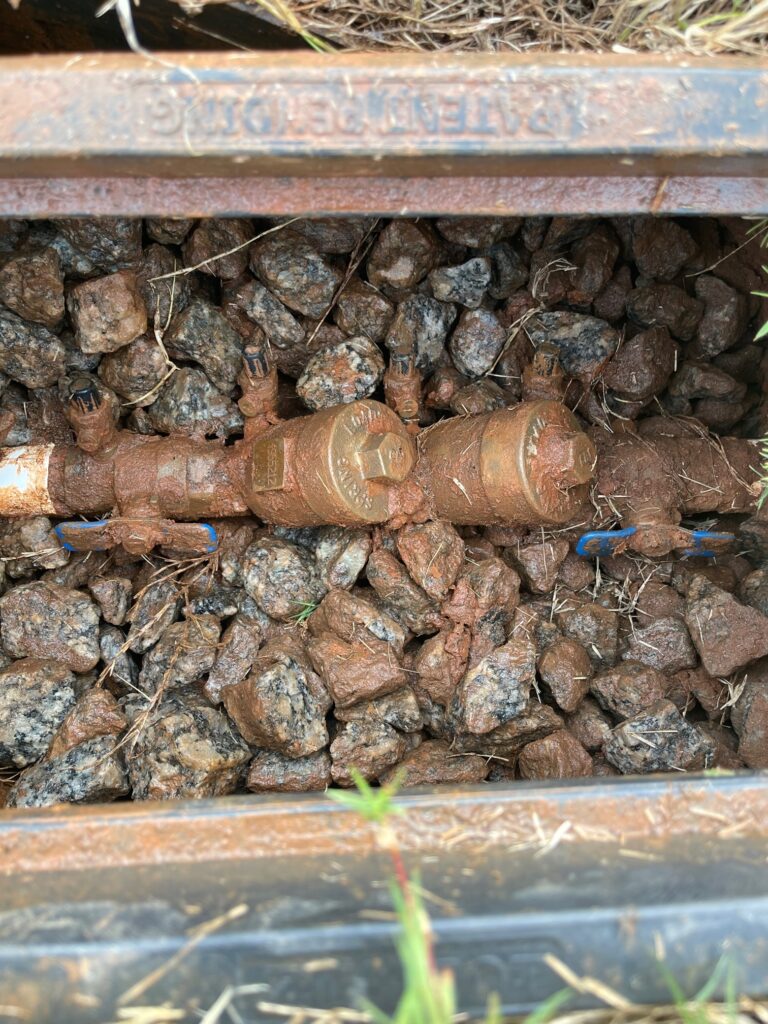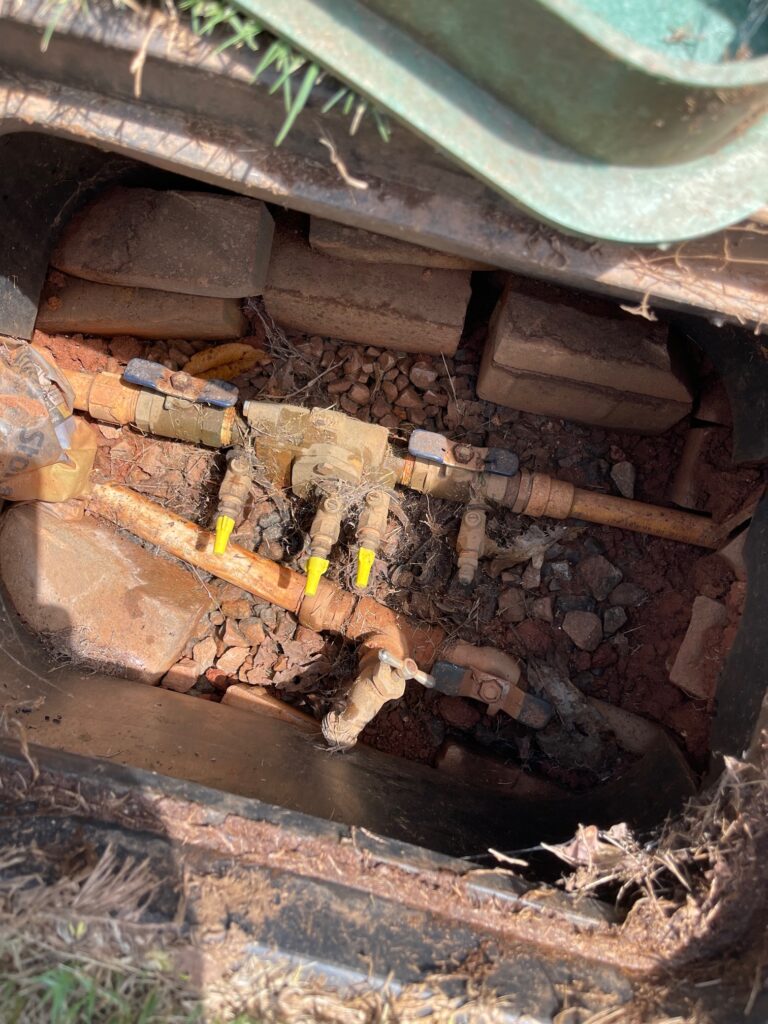Annual Backflow Testing (Double Check Valve)
We are Certified across the state of Georgia to perform the required annual backflow testing for your residential water systems. Double Check Valves Assemblies are the most common residential backflow assembly. We inspect hundreds of these each year and have experience with all kinds of issues that can be remedied without the need for replacing the unit. We specialize in our attention to detail and focus on customer service including making your inspection simple as possible year after year.
Residential Reduced Pressure Principle Backflow Tests
When contaminates are present, the state requires the use of a Reduced Pressure Zone (RPZ) backflow assembly. These backflows are the most secure and reliable type of backflow prevention device. Our expert technicians are certified across the state of Georgia to conduct these tests and can even help you understand how these work and why they are necessary.
Residential Repair Services
While testing, we do everything n our power to get your backflow back to operational status. However, sometimes its just time for a new backflow due to rust, damage, or malfunction. We start by opening up or disassembling your backflow, you will be notified beforehand. Repair services are TBD based upon labor hours and parts required.
Residential DC Assembly
Residential double-check or “DC” backflow assemblies have two ball valves and 2 internal check valves with 4 test cocks used to test that the equipment is working as expected. To test this apparatus, the flow of water needs to be turned off and it typically takes 15-20 minutes if everything goes well. The most common and laborious efforts in testing these is uncovering the ones that have had dirt run off into the irrigation boxes.

Residential Backflow Repairs
Most commonly we find backflows that are in need of some TLC. From a simple leaky test cock or a broken or stuck ball valve handle to check valves that are frozen or impeded by a rock that snuck into the water supply. DC assemblies are typically quite hardy pieces of equipment, because they have to live the majority of their lives underground in mud, under heavy construction rock, covered in a thick layer of dirt, or even submerged in rain water.

Basic Pricing for Residential Backflow Testing
The Pricing table below can be used as a guide to better understand pricing. However, these rates may change based upon travel time, emergency services, or payment type chosen.
Annual Residential Test
$55
REpair
$TBA
Find us
Frequently Asked Questions about Residential Backflow Services
Residential backflow testing is a critical process to a water company’s ability to maintain clean drinking water from the first to the last house on a public water main line. Everyone desires clean drinking water so we all have to do our part to make this possible for all the residents within your town. That means having your backflow tested annually, making sure harmful contaminants do not get put down sewer lines (ie flushed down the toilet), and being careful what chemicals you use inside and outside your home because everything likely gets back into our water supply.
Backflow occurs when contaminated or non-potable water flows in the reverse direction of the flow of water. This backward flow can pull contaminated water from its intended destination back to the source of that potable water. This can cause serious health risks to others inside your neighborhood or around the community. If you have a sprinkler system, please be sure you have a properly installed backflow and that its maintained every year.
